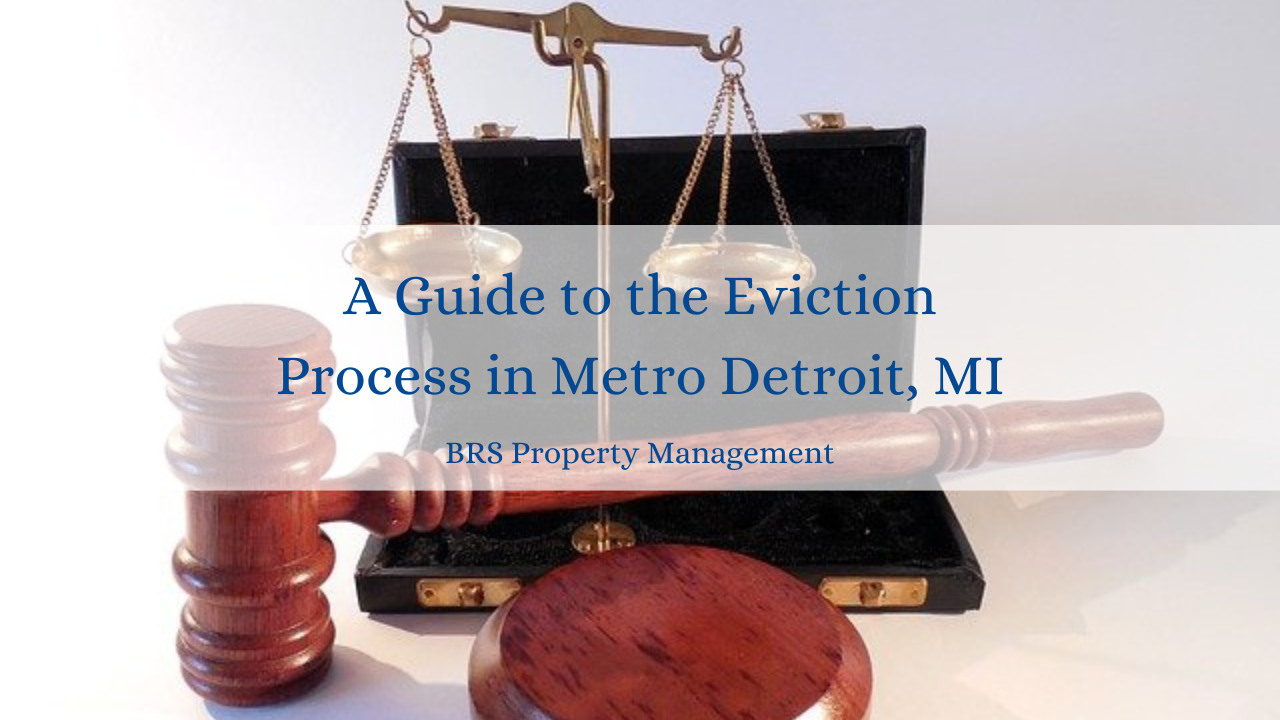As a landlord in Michigan, it's essential to fully understand the eviction process to manage your rental properties effectively and legally. This comprehensive guide serves as a crucial resource, detailing each step required to navigate through evictions within the state's legal framework.
Understanding the eviction process is crucial for landlords as it ensures that all actions taken against a tenant are within the legal boundaries set by state laws. This helps avoid costly legal disputes that can arise from wrongful evictions.
Knowing the proper procedures and timelines helps maintain professional and transparent relationships with tenants, which can enhance the reputation of the landlord and potentially attract more reliable renters.
Being informed about the eviction process also enables landlords to manage their properties more efficiently, as they can swiftly address violations and non-compliance without unnecessary delays or errors.
What’s the Eviction Process in Michigan? Here’s a Guide
The eviction process in Michigan is governed by state laws that protect the rights of both landlords and tenants. In Michigan, this process can take anywhere from 2 weeks to 2 months, depending on the grounds for eviction. The process takes longer if the tenants contest the lawsuit.

To evict a tenant, a landlord must have legal cause and follow a series of steps mandated by law, which include providing proper notice, going through the court system, and, if necessary, forcibly removing the tenant through a court order.
Lease Termination with Legal Cause
A Michigan landlord can evict a tenant for several legal causes, which primarily include:
Non-payment of rent: If a tenant fails to pay rent on time, the landlord can issue a 7-day notice to pay or quit.
Staying after the lease ends: Often referred to as "holdover tenancy," this occurs when a tenant remains in the rental unit without the landlord's permission after their lease has expired. In Michigan, landlords can issue a notice to quit, typically requiring the tenant to vacate the premises within 30 days if it’s a month-to-month lease or according to the lease terms for fixed-term leases.
Violation of lease terms: If a tenant breaks the terms of the lease agreement (such as having pets when none are allowed or causing significant damage to the property), the landlord can issue a notice to correct the issue or vacate within a specified period, usually 30 days.
Other causes: Tenants in Michigan can also be evicted if they committed material health or safety violations, or if they posed a threat or caused injury to others. For this, landlords must provide a 7-day notice before they can process the eviction.

Illegal activity: Engaging in illegal activities on the rental premises can lead to immediate eviction proceedings. Usually, landlords may need to provide a 24-hour notice.
Serving the Tenant
The eviction notice must be properly served to the tenant. This can be done through personally delivering it to the tenant, leaving a copy with a suitable person at the residence, email if both parties agree, or first-class mail. Ensuring that the notice is served correctly is vital for the legality of the eviction process.
The type of eviction notice used depends on the reason for termination. The main types of eviction notices in Michigan are:
Notice to Quit for Non-Payment of Rent: This notice gives the tenant 7 days to pay the rent or face eviction.
Notice to Quit for Lease Violation: This provides the tenant with a specific time to remedy the violation or leave. Keep in mind that certain lease violations, such as violations of the material health and safety rules, may not be cured.
Notice to Quit for Termination of Tenancy: Used for ending a month-to-month tenancy without specific cause, requiring a 30-day notice.
Notice to Vacate: Usually provided within 24 hours for illegal activities without the chance to rectify the situation.
Tenant Eviction Defenses in Michigan
Tenants may have defenses available that can delay or prevent an eviction. Common defenses include:

Improper notice: The tenant may argue that the eviction notice was not served properly.
Retaliation: A tenant could claim that the eviction is in retaliation for taking a legally protected action, such as complaining about unsafe living conditions.
Rent withholding: If the tenant withholds rent due to the landlord's failure to maintain the premises, this might be a valid defense.
Self-help evictions: The tenant may claim that the landlord attempted to forcibly remove them by changing the locks, shutting off utilities, or removing their belongings.
Attending Court Hearing
If the tenant does not comply with the notice, the next step is to file an eviction lawsuit in the appropriate district court. Both parties will have the opportunity to present their case, and the judge will make a decision based on the evidence provided.
Writ of Restitution
If the court rules in favor of the landlord, a Writ of Restitution will be issued, which is the final notice in the eviction process for the tenants to move out of the property, giving them a chance to remove their personal belongings.
This document will be issued within 10 days after the court rules in favor of the landlord.
The Eviction
Once the writ is executed, the tenant must vacate the premises. If the tenant fails to leave, law enforcement officers will enforce the eviction.

It is important for landlords to refrain from removing the tenant’s belongings or changing the locks without this final court order to avoid legal repercussions.
Conclusion
Evicting a tenant in Michigan is a legal process that requires careful adherence to specific procedures and timelines. As a landlord, understanding and respecting these legal requirements not only protects your property but also upholds your integrity and reputation in the housing market.
Always consider consulting with a professional property manager in Michigan like the ones employed at BRS Property Management who is well-versed in eviction, landlord-tenant laws, and security deposit procedures.
If you need help, call the experts at BRS Property Management and we’ll be happy to assist you.
Disclaimer: Please note that the information provided in this blog is intended for general guidance and should not be considered as a replacement for professional legal advice. It is important to be aware that laws pertaining to property management may change, rendering this information outdated by the time you read it.


